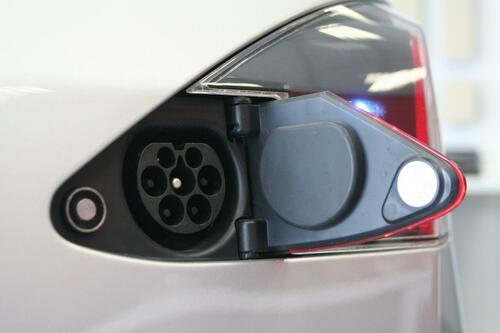
Authored by Patrice Onwuka via RealClear Wire,
Inflation rose 5% last month compared with one year prior, according to the latest consumer price index. That is the lowest level of price increases since May 2021, though it’s still not down to pre-Biden and pre-pandemic levels. Inflation’s easing may provide some relief, but it will be too late to rescue many once-thriving American households.
The harsh reality is that excessive government spending, starting with the American Rescue Plan in 2021, spurred inflation and the ensuing hardship that households – especially middle-class households – are struggling with today.
President Biden has denied responsibility for the high prices. Whether Americans blame him or not, they give him no credit for helping them through it. In new Monmouth polling this week, just 10% of Americans say middle-class families benefited “a lot” from Biden’s policies, while over half (51%) say the middle class has not benefited at all. Perceptions of Biden’s support for the middle class took a nosedive from early in his term. President Donald Trump had similar low numbers early in his term, but he had turned them around by the time he left office.
In the same poll, one-quarter of the public names inflation or rising gas prices as the biggest concern facing their family right now. This proportion is down from one-third last summer, signaling that Americans are feeling a little better about the slowing of inflation.
The left is quick to credit the misleadingly named Inflation Reduction Act (IRA) for this marginal improvement, but Americans aren’t buying it. Half of adults say that the federal government’s actions over the past six months have actually hurt their families. Just 1% rank climate change as a top priority. The IRA was a climate bill dressed up as price relief, but it is not helping Americans or addressing what matters most to them.
Simply put: the left is out of touch with middle America and the middle class. In Democratic political circles, Ohio Rep. Mercy Kaptur has been circulating a stunning data visualization showing how most of the wealthiest congressional districts are represented by Democrats, and most of the poorer half of districts by Republicans. Referring to colleagues like former Speaker of the House Nancy Pelosi, she said, “There’s an elitism that pervades when you have wealth.”
The implications are clear. Politically, the terrain favors the right – at least in the House. As Cook Political Report’s Dave Wasserman told Axios, “Increasingly, districts that make up the majority of the Democratic caucus don’t really reflect the middle-income districts where the House is won and lost.”
The left’s elitism is on full display through its policies. Take President Biden’s push to force Americans to abandon gas-powered vehicles. His tougher new emissions standards could require as much as 67% of all new vehicles sold in the U.S. by 2032 to be all-electric; last year, though, electric vehicles accounted for just 5.8% of all the 13.8 million new vehicles sold in the country. The price tag of EVs is just too high, according to six in 10 Americans, which is why they wouldn’t purchase one any time soon.
Shelling out an average of more than $58,000 for a car is an afterthought for coastal elites with comfortable six-figure incomes, but it’s out of reach for many U.S. households. Furthermore, fewer EVs may qualify for the full $7,500 federal tax credit that is supposed to make them affordable under new rules proposed by the U.S. Treasury Department.
Asking a semi-retiree like “Lynne Allen” of Key West, Fla, to pay that much to purchase a car is just another “let them eat cake” policy. “Lynne” came home from a paralegal job one day to find her husband collapsed at the bottom of the stairs. She was forced to retire early to care for him, but 40-year-high inflation drove her back into the workforce. She sometimes had to clock 50 hours a week to make ends meet.
Her adult son moved back in with her and her husband. Yet all their earnings and her husband’s disability check are still not enough to afford basic necessities. Eggs are a luxury for a woman who almost bursts into tears when a customer drops a $20 bill into her tip jar. She says, “Oh, wow, that means we get chicken tonight.” She often chooses between grains and veggies, meat or no meat at all.
“We worked our whole life. We owned a charter boat. We owned a home, and we lost it all. We were still happy. We were still making it, and then [the government] just turned around and made everything harder.”
Inflation may not be rising as fast as it was two years ago, but the damage to Americans’ financial situation will be lasting.
Authored by Patrice Onwuka via RealClear Wire,
Inflation rose 5% last month compared with one year prior, according to the latest consumer price index. That is the lowest level of price increases since May 2021, though it’s still not down to pre-Biden and pre-pandemic levels. Inflation’s easing may provide some relief, but it will be too late to rescue many once-thriving American households.
The harsh reality is that excessive government spending, starting with the American Rescue Plan in 2021, spurred inflation and the ensuing hardship that households – especially middle-class households – are struggling with today.
President Biden has denied responsibility for the high prices. Whether Americans blame him or not, they give him no credit for helping them through it. In new Monmouth polling this week, just 10% of Americans say middle-class families benefited “a lot” from Biden’s policies, while over half (51%) say the middle class has not benefited at all. Perceptions of Biden’s support for the middle class took a nosedive from early in his term. President Donald Trump had similar low numbers early in his term, but he had turned them around by the time he left office.
In the same poll, one-quarter of the public names inflation or rising gas prices as the biggest concern facing their family right now. This proportion is down from one-third last summer, signaling that Americans are feeling a little better about the slowing of inflation.
The left is quick to credit the misleadingly named Inflation Reduction Act (IRA) for this marginal improvement, but Americans aren’t buying it. Half of adults say that the federal government’s actions over the past six months have actually hurt their families. Just 1% rank climate change as a top priority. The IRA was a climate bill dressed up as price relief, but it is not helping Americans or addressing what matters most to them.
Simply put: the left is out of touch with middle America and the middle class. In Democratic political circles, Ohio Rep. Mercy Kaptur has been circulating a stunning data visualization showing how most of the wealthiest congressional districts are represented by Democrats, and most of the poorer half of districts by Republicans. Referring to colleagues like former Speaker of the House Nancy Pelosi, she said, “There’s an elitism that pervades when you have wealth.”
The implications are clear. Politically, the terrain favors the right – at least in the House. As Cook Political Report’s Dave Wasserman told Axios, “Increasingly, districts that make up the majority of the Democratic caucus don’t really reflect the middle-income districts where the House is won and lost.”
The left’s elitism is on full display through its policies. Take President Biden’s push to force Americans to abandon gas-powered vehicles. His tougher new emissions standards could require as much as 67% of all new vehicles sold in the U.S. by 2032 to be all-electric; last year, though, electric vehicles accounted for just 5.8% of all the 13.8 million new vehicles sold in the country. The price tag of EVs is just too high, according to six in 10 Americans, which is why they wouldn’t purchase one any time soon.
Shelling out an average of more than $58,000 for a car is an afterthought for coastal elites with comfortable six-figure incomes, but it’s out of reach for many U.S. households. Furthermore, fewer EVs may qualify for the full $7,500 federal tax credit that is supposed to make them affordable under new rules proposed by the U.S. Treasury Department.
Asking a semi-retiree like “Lynne Allen” of Key West, Fla, to pay that much to purchase a car is just another “let them eat cake” policy. “Lynne” came home from a paralegal job one day to find her husband collapsed at the bottom of the stairs. She was forced to retire early to care for him, but 40-year-high inflation drove her back into the workforce. She sometimes had to clock 50 hours a week to make ends meet.
Her adult son moved back in with her and her husband. Yet all their earnings and her husband’s disability check are still not enough to afford basic necessities. Eggs are a luxury for a woman who almost bursts into tears when a customer drops a $20 bill into her tip jar. She says, “Oh, wow, that means we get chicken tonight.” She often chooses between grains and veggies, meat or no meat at all.
“We worked our whole life. We owned a charter boat. We owned a home, and we lost it all. We were still happy. We were still making it, and then [the government] just turned around and made everything harder.”
Inflation may not be rising as fast as it was two years ago, but the damage to Americans’ financial situation will be lasting.
Loading…





